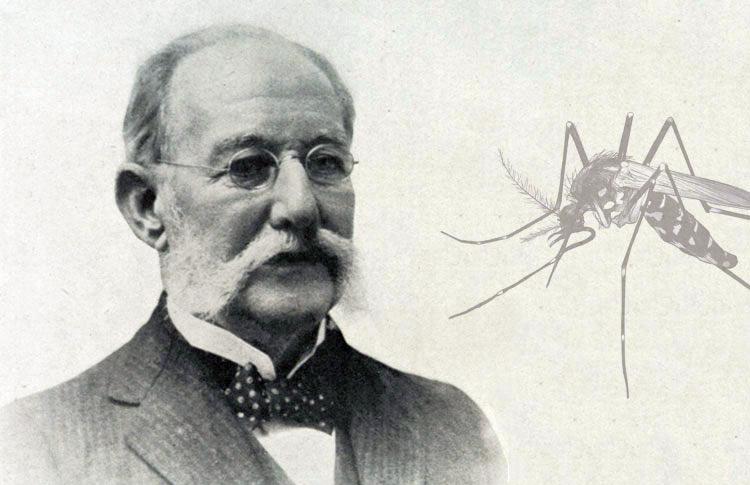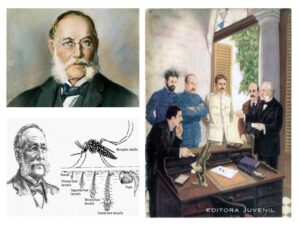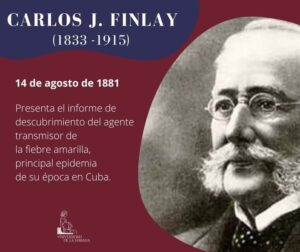Carlos Juan Finlay: The Legacy of a Luminary.

Carlos Juan Finlay Barrés died on August 19th, 1915 at the age of 81 in Havana and, although he was never awarded the Nobel Prize despite the many proposals in his favor, his name is part of the podium of great promoters of science and medicine in the Great Homeland and, a little more than a century after his death, the world remembers him as an example of talent, dedication and perseverance necessary to overcome challenges and contribute to the welfare and progress of mankind.

Cuban science owes a great deal to important architects of its development, whose indelible imprint reverberates in the enormous discoveries and contributions they bequeathed to posterity. Among them is the illustrious Camagüey physician and epidemiologist Carlos Juan Finlay Barrés, who became the discoverer of the transmitting agent of yellow fever and a hero against infant tetanus.

Born on December 3rd, 1818 in the city of Port-au-Prince, he studied in France and the United States, where he received his doctorate in medicine in March 1855 at Jefferson Medical College. Subsequently, he conducted multiple investigations on the spread of cholera and glanders, described the first case of filaria in blood observed in America and occasionally dabbled in ophthalmology.
On August 14th, 1881, he presented before the Havana Royal Academy his most important and revolutionary scientific work, where thanks to his precise and justified deductions, he revealed the female of the mosquito known today as Aedes aegypti as the transmitting agent of yellow fever, a theory that, despite more than two decades of reluctance and skepticism that later faced him, achieved his recognition.
In addition to his teaching and chess practice with remarkable fluency and ingenuity, he was a «full member», Member of Merit and Secretary of Correspondence of the Royal Academy of Medical, Physical and Natural Sciences of the capital and, in 1902, he served as Superior Chief of Health, a period in which he reorganized the Island’s sanitary system and faced the last epidemic of yellow fever registered in Havana.
Likewise, for his memorable actions, he received several distinctions, including the Mary Kingsley Medal from the Institute of Tropical Medicine of Liverpool, England, the Order of the Legion of Honor of France and the Breant Award from the French Academy of Sciences, as well as the designation of December 3 as Latin American Medicine Day in several countries of the region, in honor of his birth.

Carlos Juan Finlay Barrés died on August 19th, 1915 at the age of 81 in Havana and, although he was never awarded the Nobel Prize despite the many proposals in his favor, his name is part of the podium of great promoters of science and medicine in the Great Homeland and, a little more than a century after his death, the world remembers him as an example of talent, dedication and perseverance necessary to overcome challenges and contribute to the welfare and progress of mankind.
Written by Yadiel Barbón.



